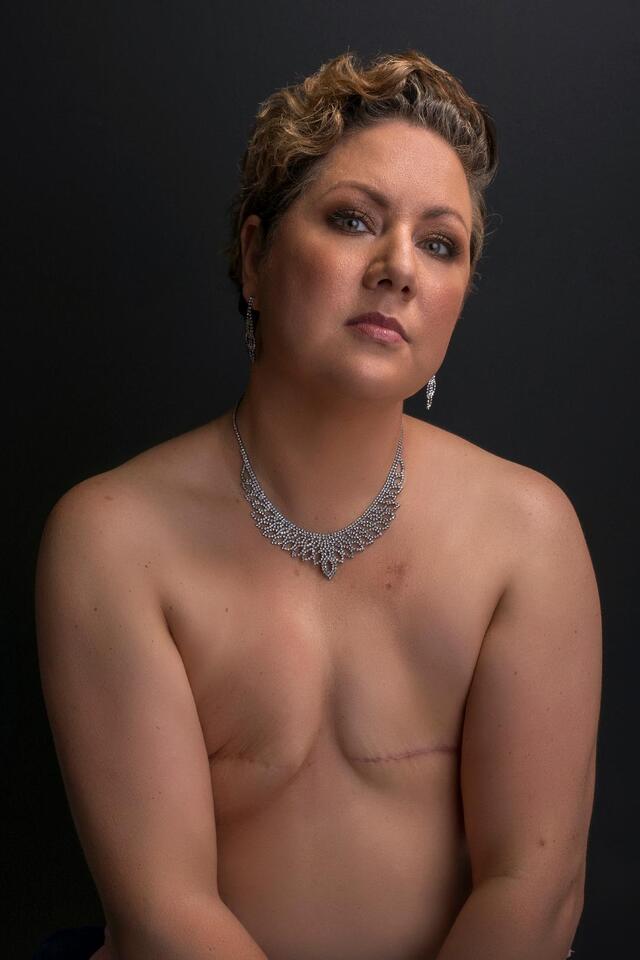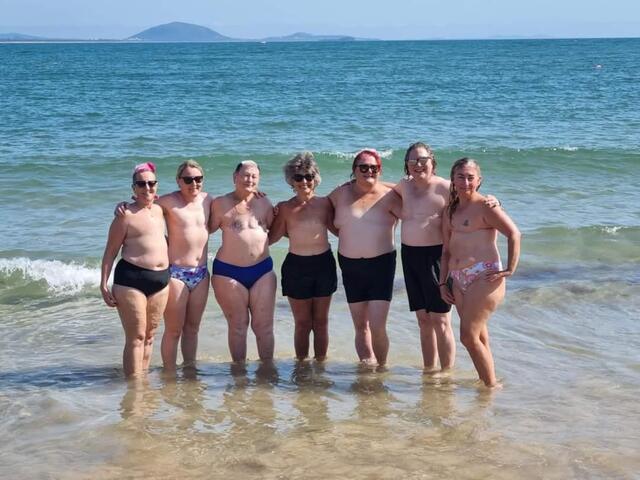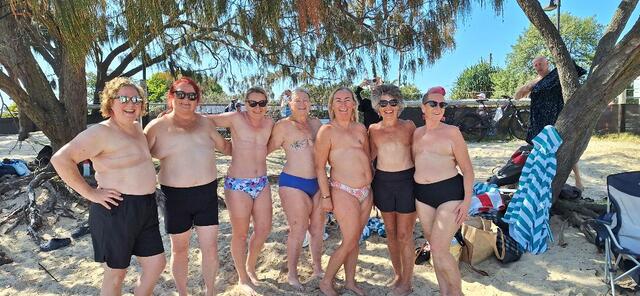Almost all women who chose not to have a breast reconstruction following a mastectomy say they are happy with their decision, new research can reveal, with advocates, including Sunshine Coast breast cancer survivor Joanna Atzori, calling for improvements in how post-surgical options are presented.
The Flinders University survey heard the voices of 460 Australian women who chose to remain flat chested following either a bilateral (double) or unilateral (single) mastectomy: the surgical removal of breast tissue either as treatment for breast cancer, or its prevention for those at high risk.
Co-researcher and flat advocate Joanna Atzori, from Maroochydore, said research found 92 per cent of women were happy with their decision to undergo flat closure, also known as ‘going flat’, but more than a quarter reported they had healthcare professionals query their decision and recommend reconstruction, even after the surgery had already occurred.
A third of the respondents also reported feeling like their healthcare team were biased towards a particular option.
The results featured in a presentation titled ‘There are more important parts of your body than your breasts’, at the recent International Conference on Cancer Nursing (ICCN), hosted by the Cancer Nurses Society of Australia (CNSA) and the International Society of Nurses in Cancer Care (ISNCC), in Adelaide.
The two-year research project was spearheaded by consumer advocates Joanna Atzori, Robyn Smith and Melanie Law who are calling for improvements to the information, resources and surgical options discussed at the time of undergoing mastectomy for cancer or preventative reasons.
Joanna said despite what many people believe, not every woman wants or needs to replace her breasts surgically following mastectomy.
“The focus groups and research data revealed examples of atrocious treatment of women, including patients whose surgeons demanded a psychological assessment before they agreed to operate,” Joanna said.
“As advocates and researchers, we question why any other person or healthcare provider – male or female – would feel they have the right to interrogate patients and question their psychological and mental state of mind when requesting flat reconstruction.
“If the patient is clearly stating how they want their body to look, feel and function after mastectomy, nobody else has the right to comment or put forth their personal biases or social beliefs about that patient’s wishes.
“I understand not all women have smooth surgical experiences and I want to see flat reconstruction offered as a valid and primary choice for future generations impacted by mastectomy surgery.”
Dr Fiona Crawford-Williams from the Cancer Survivorship Program at Flinders’ Caring Futures Institute, who led the survey said thousands of Australian women undergo a mastectomy in Australia each year but there has been very little research into the experiences of those who choose flat reconstruction.
“By hearing from those who have had to make this decision, we hope to bring about change, working together with breast care nurses, surgeons, and other healthcare professionals. A well-informed person can’t make the wrong decision,” Dr Crawford-Williams said.
The researchers say the collective voices of the survey participants loudly affirms that women should have the freedom to choose flat chested outcomes, especially when those body parts (breasts) are considered potentially harmful due to cancer diagnosis or hereditary risk factors.
Since her own cancer diagnosis in 2019, aged 41, Joanna has volunteered as co-administrator of the Sunshine Coast Breast Cancer Friendship Circle, a local support group connecting people with lived experience of breast cancer.
She is also the organiser of Flat, Fabulous and Fierce Sunshine Coast, a social support group for women who have undergone mastectomy and chose flat reconstruction. In 2024, the group hosted its inaugural annual topless beach swim at Mooloolaba for International Flat Day (7 October).
Joanna has been documenting her breast cancer and ‘flat life’ experience as author of online blog #UnBreasted and since becoming a flat advocate, is now a member of the Council of International Advocates for Not Putting on a Shirt, a US-based charity raising awareness for flat reconstruction, also known as aesthetic flat closure.
Joanna encourages any person who has undergone single or double mastectomy to find their tribe and connect with other ‘flatties’ in the Flat Life Australia Facebook group.
Joanna and others from the Australian flat community appeared in a story aired on The Project (Network 10) in 2023, celebrating women who choose flat reconstruction after mastectomy.










